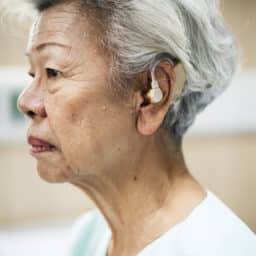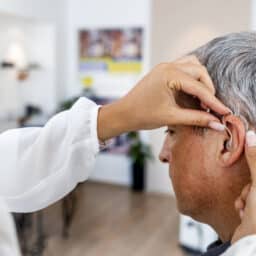Understanding Contact Dermatitis: Causes and Treatment

Contact dermatitis is a common skin condition that occurs when the skin comes into contact with certain substances, resulting in irritation or inflammation. It can be uncomfortable and even painful, but with proper identification and management, you can find relief. Identifying Contact Dermatitis There are two main types of contact dermatitis: When you have physical…
Tinnitus Awareness: Understanding and Managing the Sounds Within
TINNITUS AWARENESS: UNDERSTANDING AND MANAGING SOUNDS WITHIN INTRODUCTIONAs we mark Tinnitus Awareness Week, Midwest Hearing is committed to shedding light on this common symptom that is not a disease but a symptom. Tinnitus affects approximately 15% to 20% of the population and is particularly prevalent among older adults. This blog post aims to provide clarity…
How To Minimize Your Exposure To Indoor Allergies

Over 100 million people in the U.S. experience different types of allergies yearly. When you think of allergies, you likely picture sneezing in the park as a gust of wind brings pollen your way. While hay fever is no laughing matter, pollen may not be the only allergen to look out for. During the winter,…
Allergies Worse at Home? These Four Key Reasons Could Be the Cause

Approximately 100 million people in the U.S. experience allergies every year. When you think of allergies, you likely picture sneezing and coughing when walking through the park on a high-pollen day or picking out flowers at the grocery store. While there are many allergen sources outside the home, it is essential not to overlook sources…
New ‘Ears’ Day: Prioritize Your Hearing Health in 2024

As you’re watching the fireworks explode in the sky this New Year’s Eve, take some time to think about setting a few hearing-focused New Year’s resolutions to make your ears a priority in 2024. Resolution No. 1: Protect Your Hearing We often think of hearing loss as something that happens as you age, but there…
‘Ears’ to a Great Holiday Dinner: Let’s Make Your Holiday Feast ‘Sound’ Amazing!

As we dive into the holiday season, it’s time to turn up the fun and ‘amp’ up the joy! No matter your hearing abilities, we want everyone to savor the festive flavors together. Here’s a recipe for creating an unforgettable holiday dinner: 1. Find Your Perfect ‘Sound’ Spot: 2. Dial Up the Volume: 3. Seating…
Sneezin’s Greetings: Practical Tips for Managing Winter Allergies and Asthma

The winter holidays are a time of joy and celebration, but for those dealing with allergies and asthma, it can also be a season of increased vigilance. At Midwest Ear, Nose and Throat Specialists, our Allergy & Asthma team, led by Dr. Cherie Y. Zachary and Dr. Alice R. Knoedler, provides expert insights and straightforward…
An Overlooked Connection: Diabetes and Hearing Loss

Understanding the Link As we observe National Diabetes Month this November, it’s important to spotlight a less-discussed aspect of diabetes: its impact on hearing health. Diabetes, known for affecting various bodily functions, also significantly influences auditory health. Research indicates that individuals with diabetes are more likely to experience hearing loss compared to those without the…
Hear, Hear! Hearing Aids Don’t Just Improve Your Hearing; They Might Just Save You from a Fall

It’s something we don’t often think about: the silent but profound impact of hearing loss on our health and safety. As we age, it’s not uncommon for our hearing to diminish, but did you know that this could be putting us at a greater risk than we realize? Recent research is sounding the alarm…
Why Is It Important to Monitor Your Hearing Health Over Time?

Being proactive about protecting our hearing is essential, but sometimes, even with the best efforts, changes can sneak up on us. That’s why keeping an eye—or an ear—on our hearing health is so important. Hearing loss isn’t selective; it can happen even with preventive actions in place. If you notice any shifts in your hearing,…
